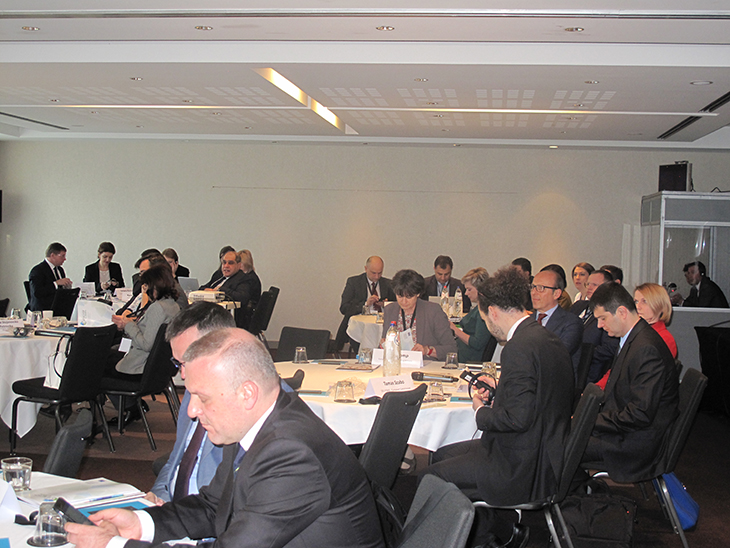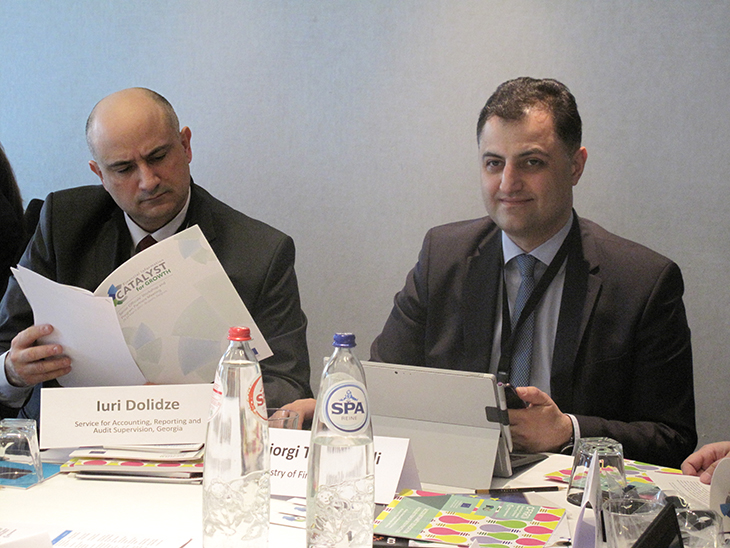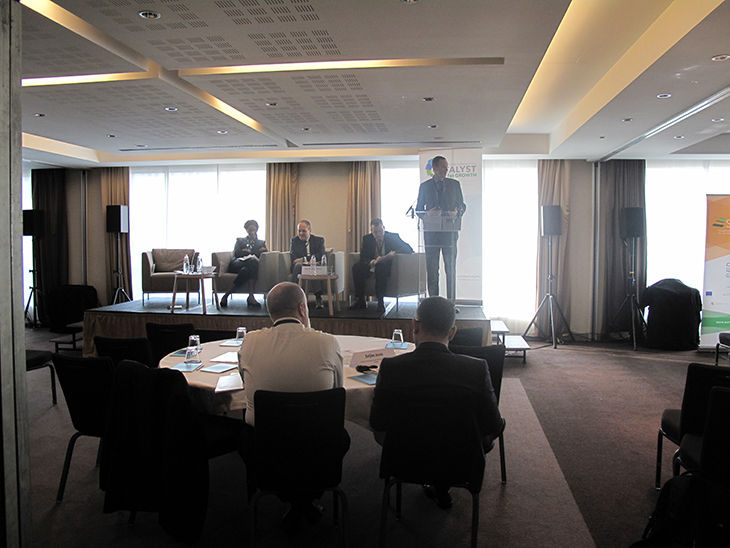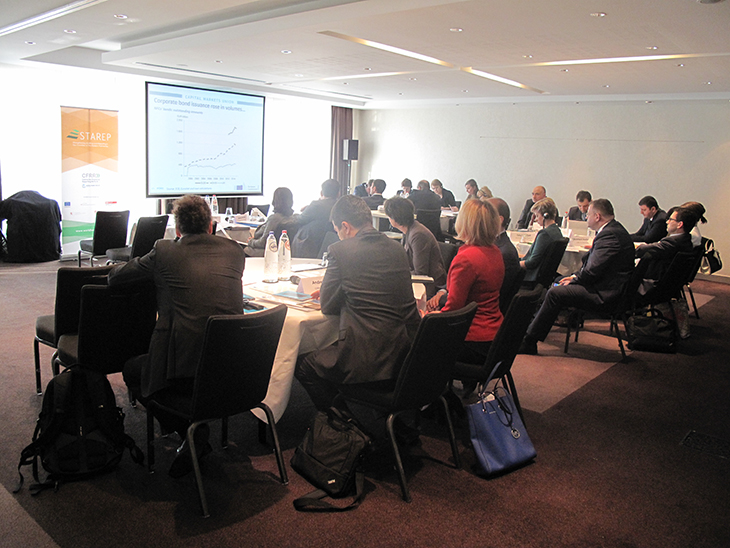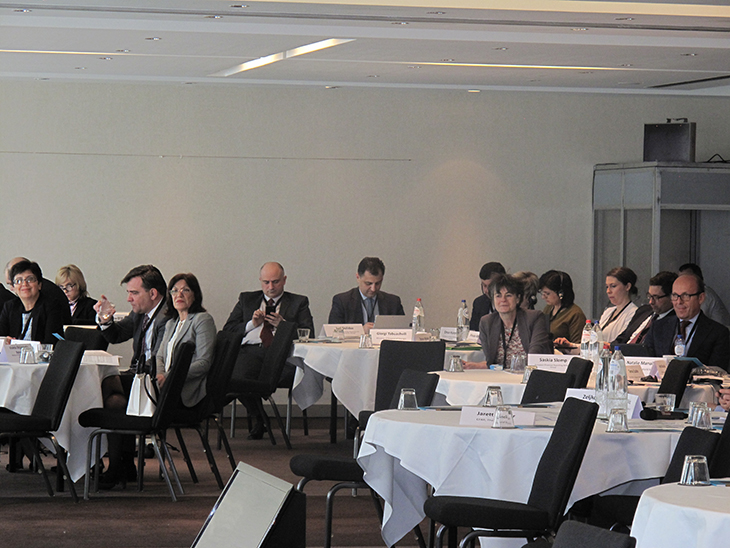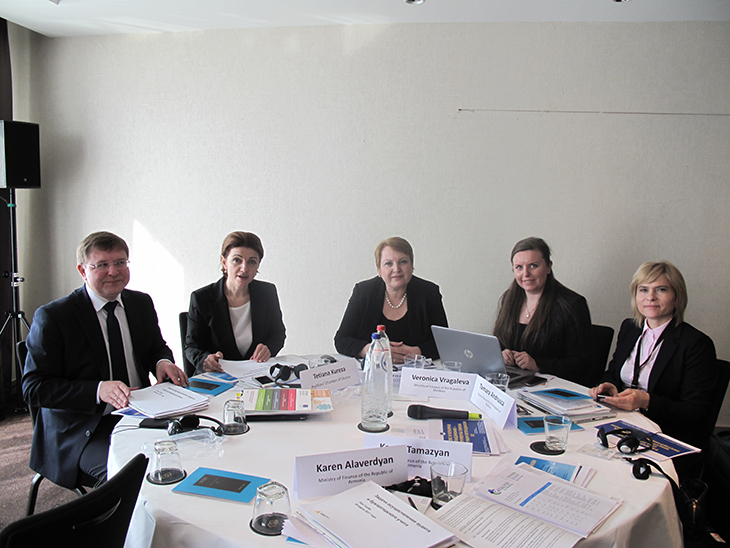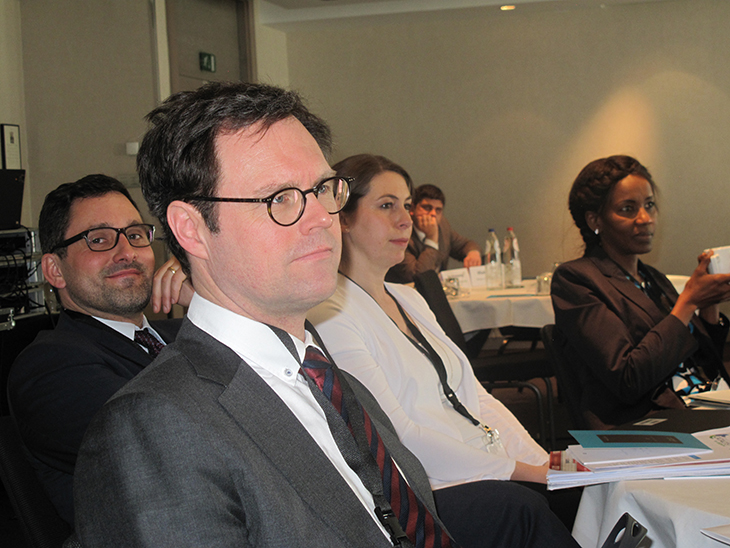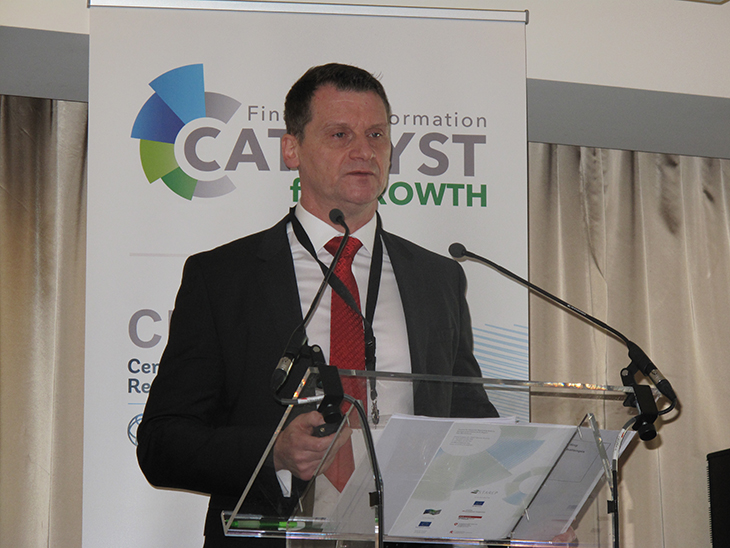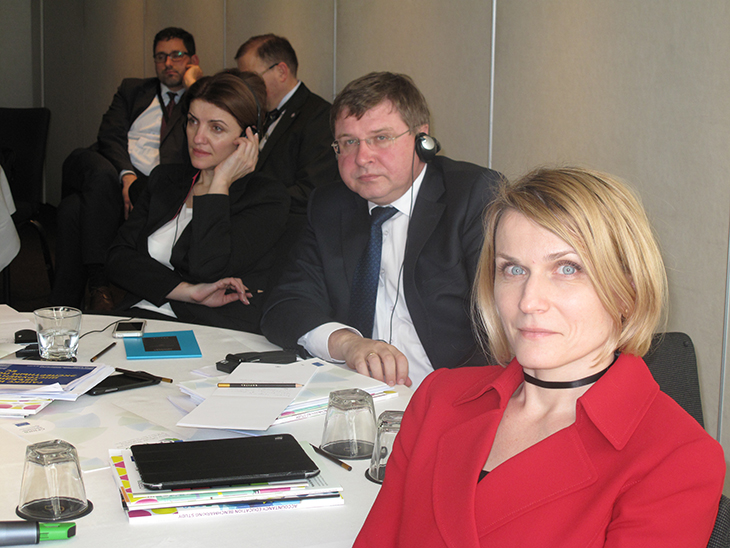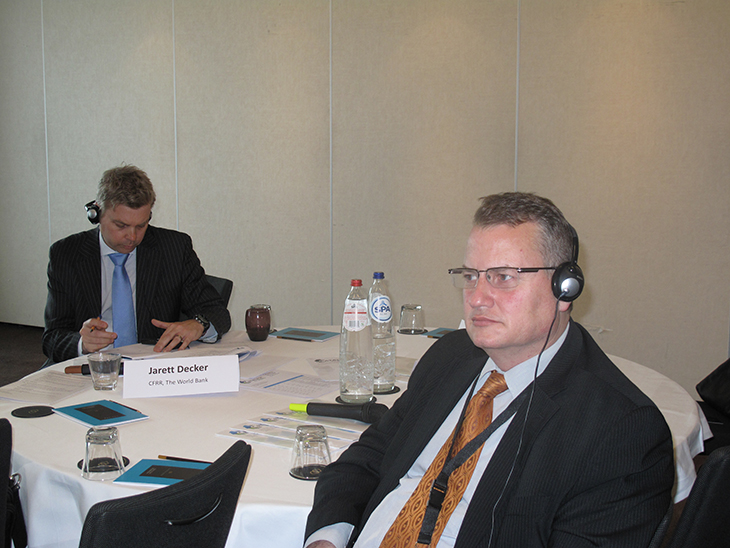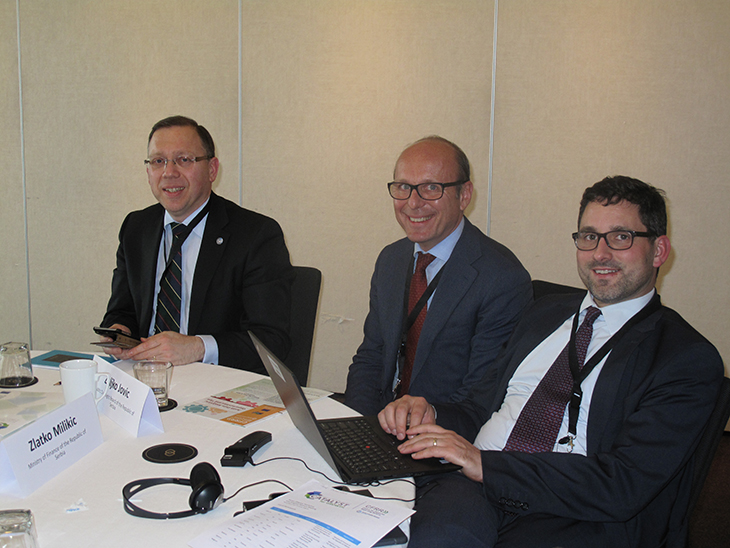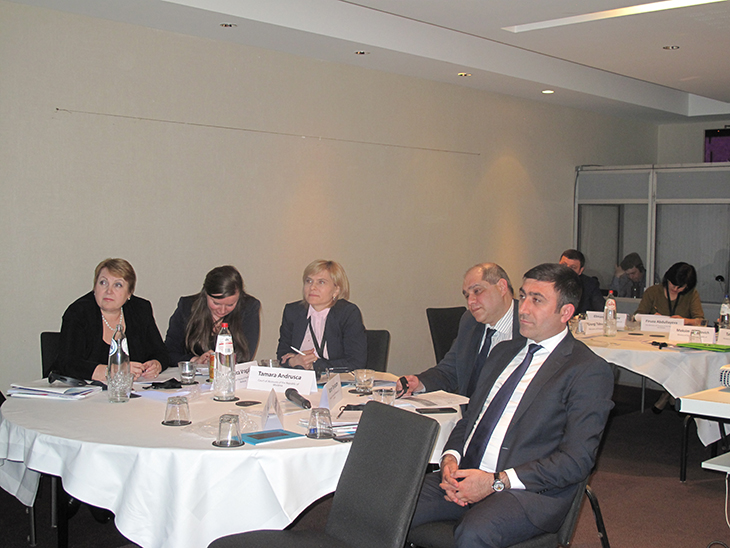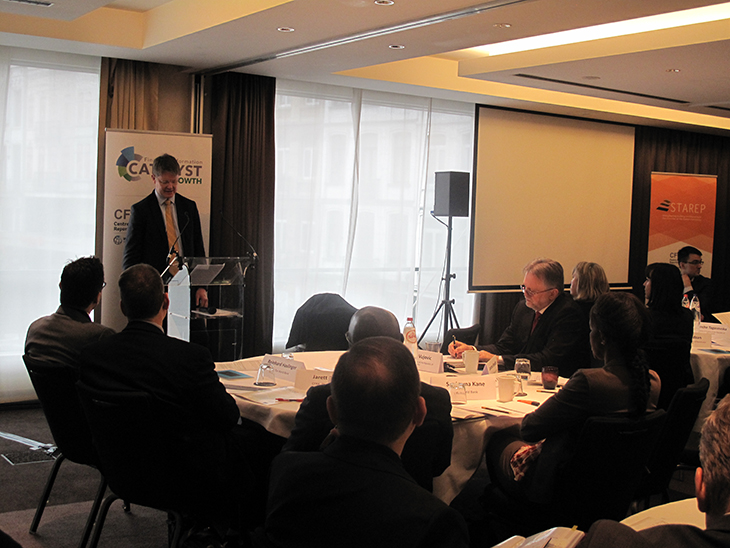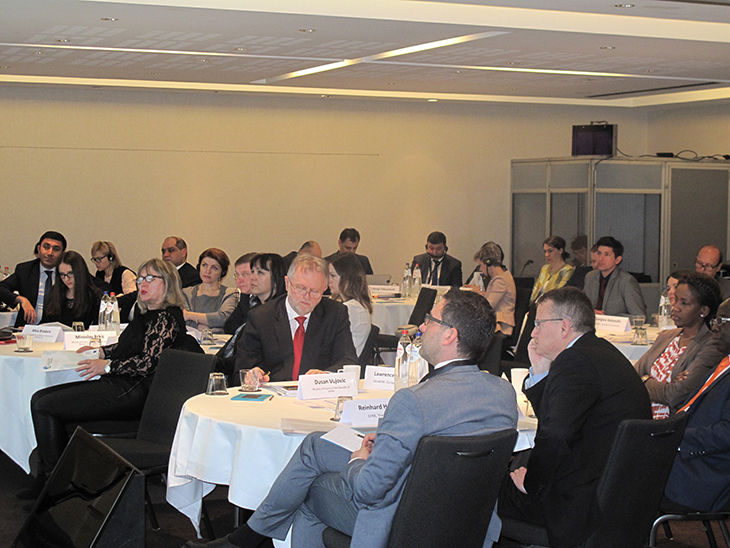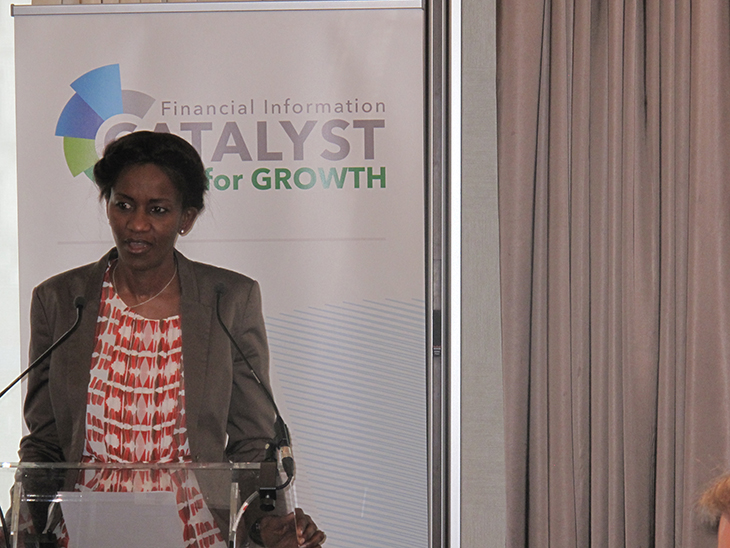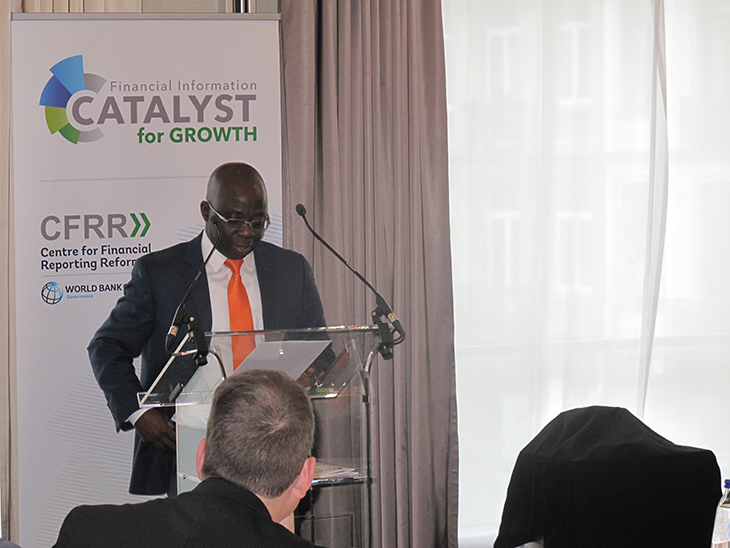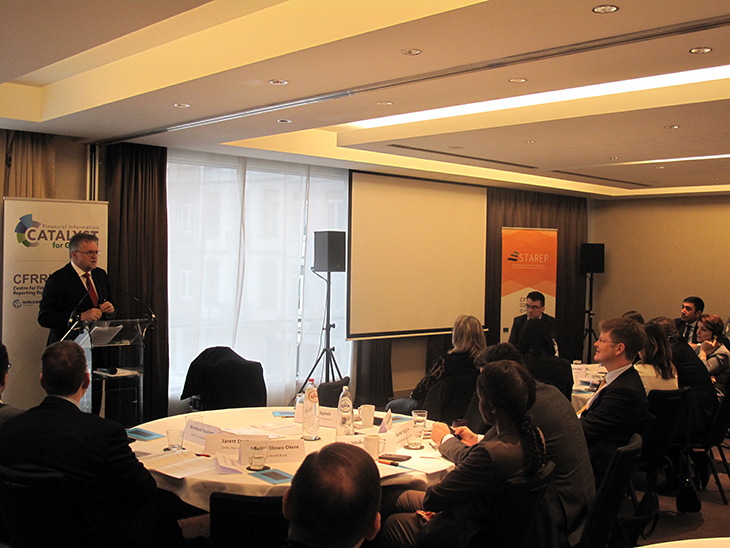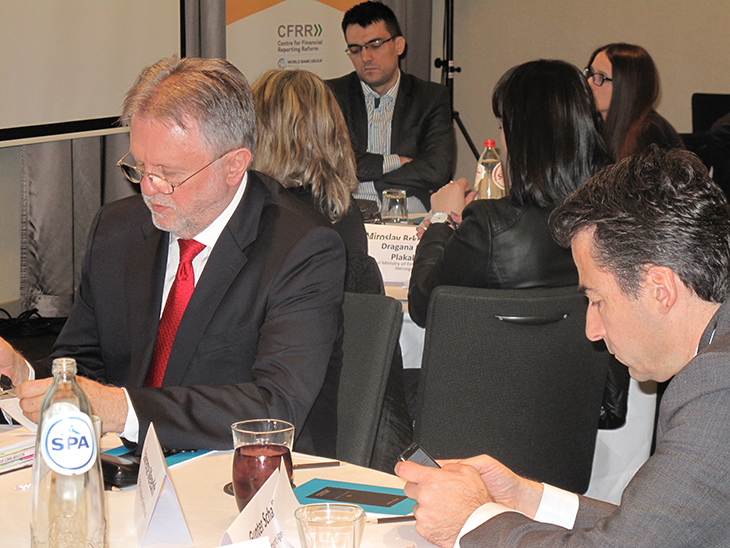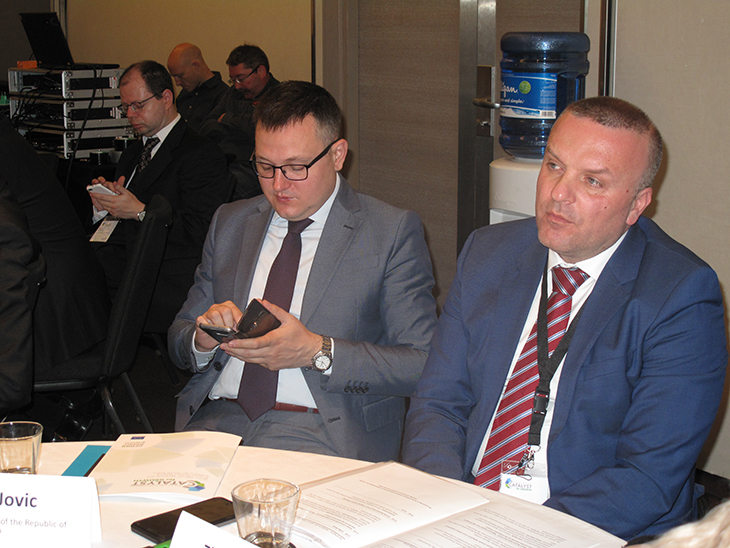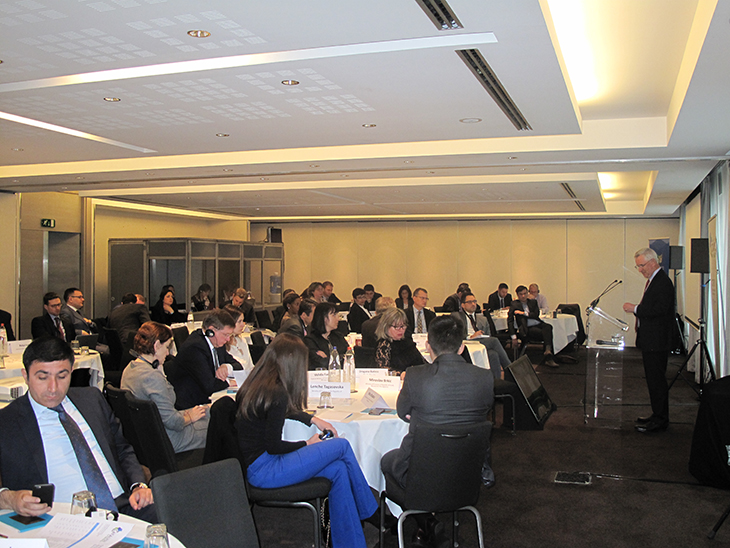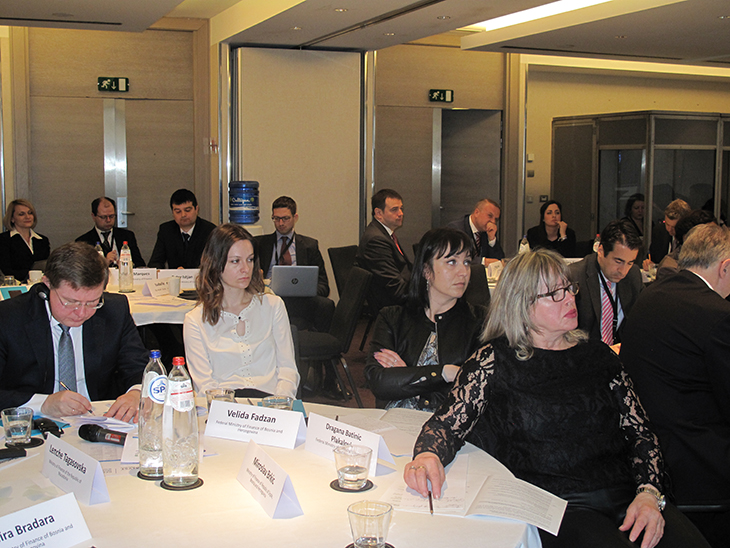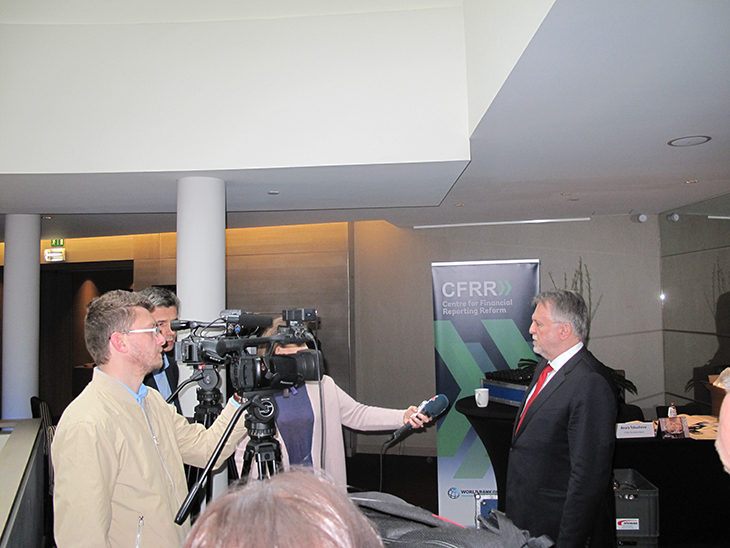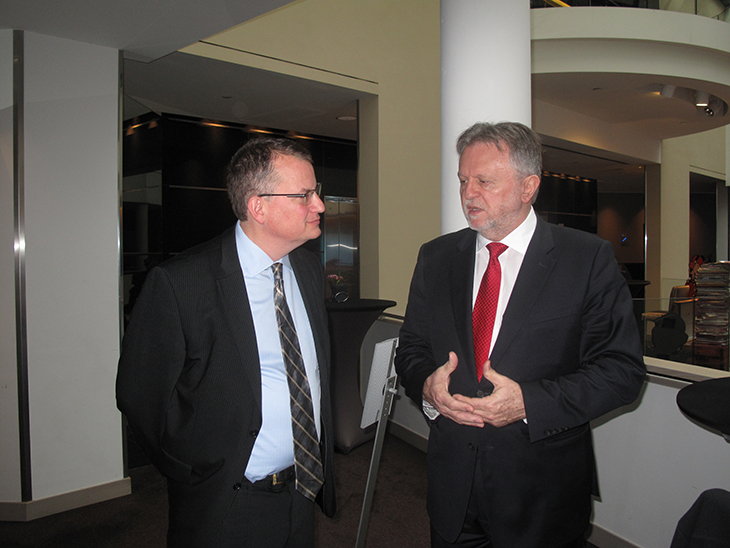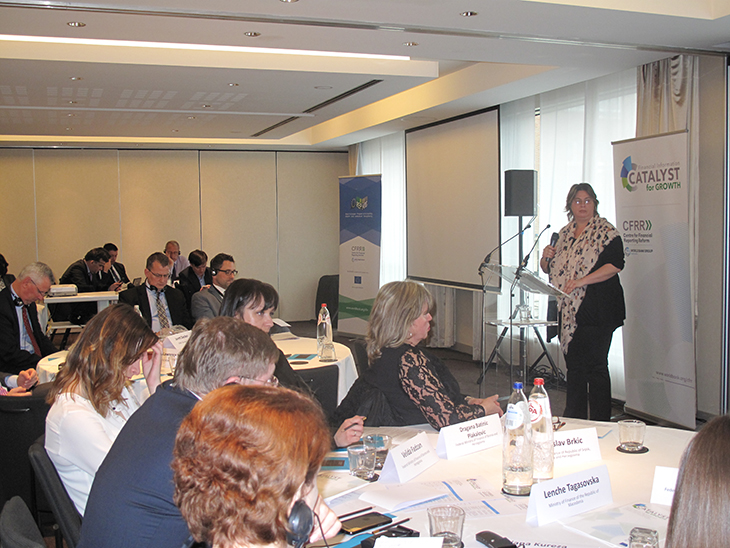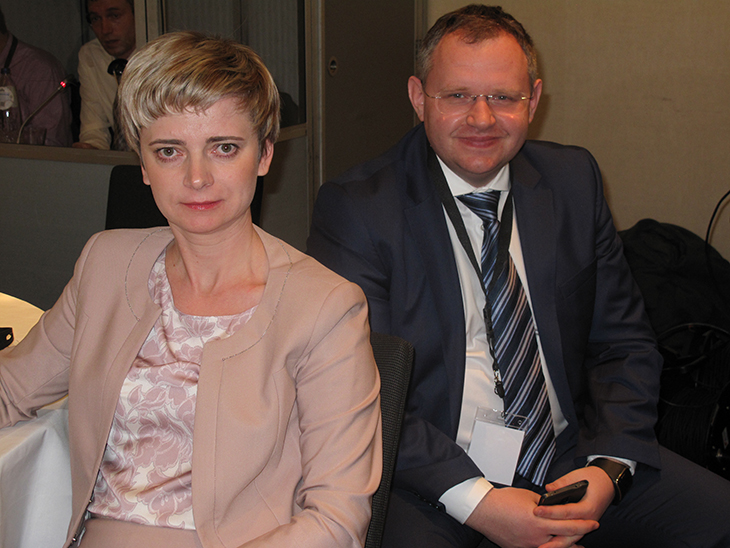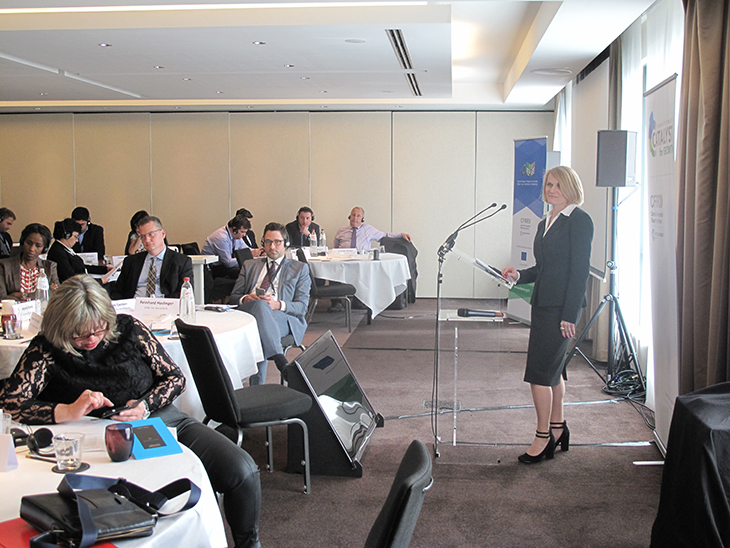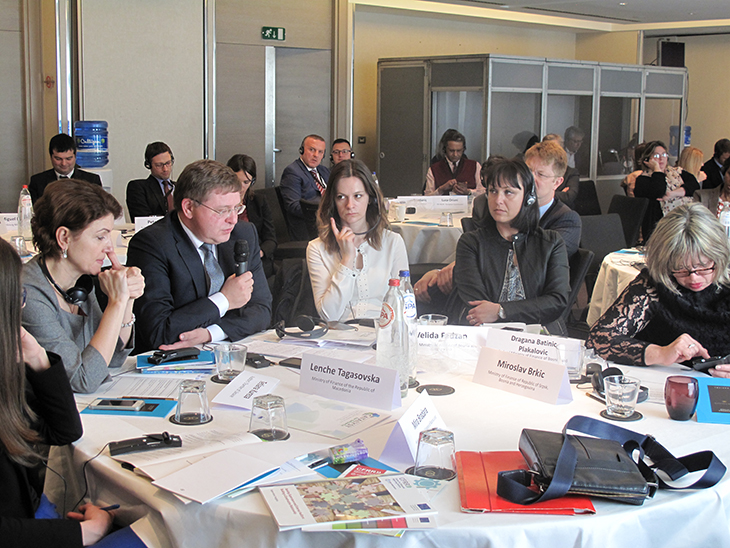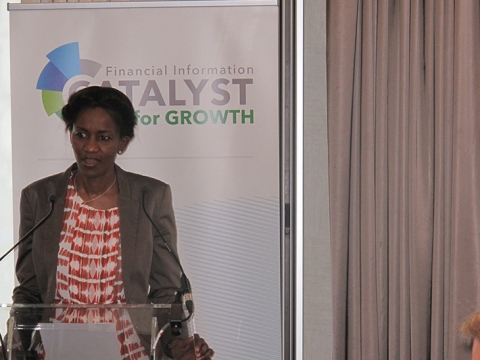Serbian Finance Minister and other government and EU representatives discuss reform progress and share experiences
- Serbian Finance Minister Dusan Vujovic joined senior representatives from the World Bank Centre for Financial Reporting Reform (CFRR) program beneficiary countries, CFRR development partners including the European Commission, and the Governments of Austria, Switzerland and Luxembourg, as well as World Bank/CFRR representatives in Brussels on 29 March 2017.
- The meeting was convened to discuss financial reporting reform progress in countries in the Western Balkans and the European Union’s Eastern Partnership, the results of two programs being implemented by the CFRR, and the road ahead.
- While gross domestic product (GDP) in many of these countries is increasing, sustainable development and employment generating growth remain a challenge. Reliable financial reporting contributes to development and growth since it enables businesses to access finance so that they can expand, hire more people and create wealth.
- The CFRR is developing the capacity of local institutions in these countries to implement financial reporting reforms and is also helping client countries to reshape incentives so that businesses are willing to invest in high quality financial reports.
When Dusan Vujovic became Minister of Finance of the Republic of Serbia in July 2014, the country’s economic outlook was challenging. One of the key reasons for large deficits in Serbia in the past was poor quality accounting and accountability of public sector companies, Minister Vujovic told participants at a meeting in Brussels organized by the Centre for Financial Reporting Reform (CFRR) on 29 March. The situation has improved significantly since then, with growth projected to accelerate from 2.8% in 2016 to about 4% over the medium term, according to the World Bank. Various factors have contributed to this growth, which has been supported by “progress in the adoption of international standards of financial reporting,” according to Minister Vujovic, who explained that Serbia is “also moving into a new system of a higher level of responsibility and professionalism in the preparation, presentation and revision of those reports.”
When Dusan Vujovic became Minister of Finance of the Republic of Serbia in July 2014, the country’s economic outlook was challenging. One of the key reasons for large deficits in Serbia in the past was poor quality accounting and accountability of public sector companies, Minister Vujovic told participants at a meeting in Brussels organized by the Centre for Financial Reporting Reform (CFRR) on 29 March. The situation has improved significantly since then, with growth projected to accelerate from 2.8% in 2016 to about 4% over the medium term, according to the World Bank. Various factors have contributed to this growth, which has been supported by “progress in the adoption of international standards of financial reporting,” according to Minister Vujovic, who explained that Serbia is “also moving into a new system of a higher level of responsibility and professionalism in the preparation, presentation and revision of those reports.”
The purpose of the meeting was to discuss the challenges and solutions related to quality and transparent financial reporting in countries in the Western Balkans and the EU’s Eastern Partnership, and foster the exchange of knowledge and experience in the area of financial reporting reforms. Participants included senior representatives from the CFRR program beneficiary countries, CFRR development partners, and World Bank/CFRR representatives.
The meeting was preceded by the Senior Officials’ Workshop on 28 March, which convened around 35 senior officials from ministries of finance and economy of countries participating in two programs being implemented by the CFRR in the Western Balkans (EU-REPARIS) and the EU’s Eastern Partnership (STAREP).
Supporting economic growth that benefits all society
Edward Olowo-Okere, Director of Financial Accountability and Reporting, Governance Global Practice at the World Bank, highlighted the importance of making information available that attracts foreign and direct investment, helps fight mismanagement and corruption, and supports economic growth which benefits all society and supports shared prosperity.
An ever-increasing need for financial transparency
Today’s economic climate poses evolving challenges for businesses, big and small, related to cross-border operations, growing expectations from investors and regulators, and the increasing complexity of financial transactions, their valuation and disclosure. In addition to helping local enterprises (especially SMEs) to access finance and capital markets, sound financial reporting can foster an improved business climate, promote the integration of local companies in the global economy, and reduce the risk of crises in the financial sector.
While many of the countries covered by EU-REPARIS and STAREP have already made changes or draft amendments to align their national legislation more closely with EU laws and/or international good practice, they need the institutional capacity to be able to implement the changes. In addition, there is a limited demand for reliable financial reporting in countries that are transitioning from state-dominated or non-market economies. By contrast, in a competitive and established market economy, reliable financial reporting is mainly induced by demand from lenders, investors and other interested parties.
Building capacity to implement reforms and creating incentives for reliable financial information
Jarett Decker, Head of the CFRR, explained how the CFRR’s reform efforts focus on helping partner countries to realize the benefits of reliable financial reporting by: enhancing both the supply of, and the demand for, credible financial information; raising the quality of financial reporting and auditing by building the capacity of providers; promoting the use of financial information by suppliers of capital and credit; and helping businesses, e.g. SMEs, to better present themselves to suppliers of capital and credit.
The CFRR is also supporting the establishment of effective audit oversight boards in its partner countries to improve the quality of audits and remove the worst performers from the market, and promote public understanding of, and trust in, auditing and financial reporting through public outreach.
Partnerships vital in achieving approximation with EU laws and international good practice
Partnerships that make expertise and support available to countries are key for reform progress. The events in Brussels provided opportunities to review the success of the STAREP and EU-REPARIS programs and for CFRR client countries to discuss their aspirations for the future directly with high-level representatives from the European Commission (EC), and the Governments of Austria, Switzerland and Luxembourg.
Speakers from the EC’s Directorate General for Neighbourhood and Enlargement Negotiations included Lawrence Meredith, Director of Neighbourhood East, and Colin Wolfe, Head of Unit, Western Balkans Regional Cooperation and Programmes. They provided information pertinent to reform in the regions covered by the STAREP and EU-REPARIS programs from the EU’s perspective. Through these programs, the World Bank Group and the EC have been partnering for many years in order to support reforms in financial reporting that are conducive to economic development and closer integration with the European market, as well as providing essential support for growth and investments in partner countries.
The Capital Markets Union: Reducing over-dependence on bank loans
Niall Bohan, Head of Unit, Capital Markets Union (CMU) at the EC, provided an overview of the benefits of the CMU for the business community. The CMU aims to: increase market-based finance from various sources and build a stronger equity culture to complement bank lending, and stimulate long-term finance for infrastructure and SMEs. It also aims to strengthen risk diversification and shock absorption by removing barriers to cross-border capital flows and investment. Reliable financial reporting will play a key role in facilitating more free flowing financial capital across the CMU.
Achievements to date
In the 10 years since its establishment in Vienna in 2007, the CFRR has helped countries to modernize their systems of corporate financial reporting, and has succeeded in promoting greater availability, transparency and reliability of financial information.
Key accomplishments include:
- Creating a hub of technical knowledge and implementation experience which have benefited most countries in the Europe and Central Asia (ECA) region and can now be leveraged on a global basis;
- Organizing more than 100 events, benefiting some 7,000 participants;
- Producing over 50 publications;
- Advising new EU Member States and accession candidates on implementing modern financial reporting frameworks;
- Facilitating the development of accounting education material and disseminating international standards relating to financial reporting; and
- Helping the accounting profession to further develop and gain recognition.
Over the last year, several countries in the EU’s Eastern Partnership have made changes and draft amendments to national legislation to ensure greater alignment with EU requirements and international best practices. The capacity of professional accountancy organizations has been strengthened, and the number of universities accredited by internationally recognized professional associations has increased. However, the countries still face common challenges, especially regarding institutional capacity, strengthening accountancy and audit education, and promoting good financial reporting to private and state-owned businesses, regulators and auditors.
In the Western Balkan countries, some of the recent achievements include the establishment of Public Oversight Boards in all countries, and all professional accountancy organizations are now associate or full members of the International Federation of Accountants. A number of education and training activities have also increased the capacity of the accounting profession to provide effective support to the private sector and high potential SMEs. However, there is a need to focus further on implementation support and assisting public oversight boards to become effective and sustainable.
The way forward for the CFRR
Building on the experience gained in the ECA region, the CFRR is now exploring new frontiers. These include leveraging accountants to support SMEs, public sector accounting, and going global.
During her closing remarks on 29 March, Soukeyna Kane, Practice Manager, Financial Accountability and Reporting, Governance Global Practice, ECA region at the World Bank, underscored the need to continue working towards an open and transparent environment, and encouraging businesses to value financial information, appreciate its potential, and demand the information they need to develop and grow.




